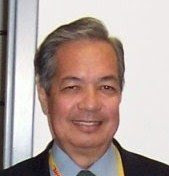My March 3rd column “The Aquino Mystique and Mistake” drew some interest and some readers sent in their comments. A few agreed with my analysis, while others offered what one might call an effort to defend the late President Aquino from my conclusion that she erred in not using her immense powers in 1986 to drastically remake our society. “ Yes, she had a mandate, but she also had so many who helped her get elected demanding their piece of flesh… Cory had too many people to whom she was obligated that she was hamstrung in her efforts to move forward” is what one reader offered.
Another reader opined thus:
“ I would like to commend you for your commentary on the … subject. I think it is honest and to the point. In fact, I have my private fears that Noynoy (who seems to be the front-runner and will probably win) will go the same way others have because he's unqualified for the position. Though honest, he will be ruled by a group of special interest guys and the corruption merry-go-round will continue.”
Indeed the issue of a democracy’s ability to get things done has often been called to question. The standstill in the US Senate insofar as health reform legislation is concerned perhaps best illustrates one of the frustrations with the democratic process. On the other hand dictatorships and absolute monarchies, though efficient in getting things done, also very efficiently wipe out all freedoms and the power elite amasses all the wealth. “Power corrupts. Absolute power corrupts absolutely”.
The Philippines have seen two occasions when the use of absolute power could have resulted in the betterment of our country. We’ve discussed Cory Aquino’s time in office, and before that there were 21 years of Marcos. Almost fourteen of those years a dictatorship.
Many among the older generation genuinely welcomed martial law in 1972. The initial result was a greater sense of security, some order replaced chaos, criminals were pursued and punished with due speed and effectiveness.
Marcos also took some initial steps to address the issue of concentrated wealth. He took over many of the monopolistic businesses owned or controlled by the oligarchs. He also confiscated large haciendas and hinted at fair and equitable land distribution.
In no time at all we found his moves to be a sham. Marcos’ main intent was to become the “super oligarch” and turned the businesses over to his cronies and family members. Crony capitalism became an art form. A robust “kleptocracy” was solidly entrenched. In perhaps an unguarded moment, Imelda Marcos, the smiling, singing partner in the “Conjugal Dictatorship” blurted out to foreign listeners that “ we own almost everything in the Philippines”.
And the mighty sword heretofore aimed at criminals was used by Marcos to slash away at political opponents and anyone else daring to articulate dissent or criticize the regime. Police and military became no more than large private armies.
So, in a span of 25 or so years we have witnessed the ill effects of power when used in the perverse method that Marcos did, and the seemingly inutile results produced when authority was in the hands of Cory Aquino who could not effectively manage a democracy.
While we may be delving into the past here, the discussion has great relevancy to the present because Filipinos are again poised to go to the polls and select a new leader. It is time, I believe, for some serious national soul-searching.
Can true democracy find bloom in a country where, in some areas, warlords with private armies prove more powerful than the de jure government? Will the oligarchs who have re-emerged and prospered since the fall of Marcos willingly unclench its stifling grip on the country’s business arteries and allow true free enterprise to take root and grow? Will those who occupy leadership roles from the president on down to the lowliest barangay captain truly abide by their oaths to serve the people and once and for all resist the lure to easy riches and perpetual power? Will those who manage the country’s bureaucracy look at government positions as opportunities to serve the Filipino people rather than a means to further perpetuate the “lagay” culture? Will the police and armed forces protect and defend the citizenry, or, as what seems to happen now, be the bodyguards of the oligarchs and their minions? Will there finally be a government that the people can trust? And just as importantly, will the electorate seek and pursue altruistic goals or yet again be one led by the mindless, popularity enticed, vote selling masses who have made movie stardom the preferred vehicle to public office?
We may not necessarily find or arrive at definitive and satisfactory answers; nevertheless the conversation needs to take place. The discussion that centers on substantive issues must preempt the tendency to be swayed by pizzazz and “pakulo”. In the final analysis it is the citizenry that must decide what path the country eventually takes. Electing a “saint” did not seem to work out for us. As one reader wrote in, “,Being honest for this highest position is not enough!”
Yet as we saw with Marcos, the presidency can easily, and with lethal and devastating effect, lure a leader to indulge in the deadly sins of greed and avarice in addition to acquiring a voracious appetite for perpetual, uncontested power.
“These are the times that try men’s souls”, wrote Thomas Paine in his collection of essays, The Crisis. His ideas helped give impetus to the movement towards American independence. His famous quote seems aptly appropriate for Filipinos approaching the May 2010 elections
Saturday, March 6, 2010
Subscribe to:
Post Comments (Atom)
.jpg)
.jpg)
No comments:
Post a Comment